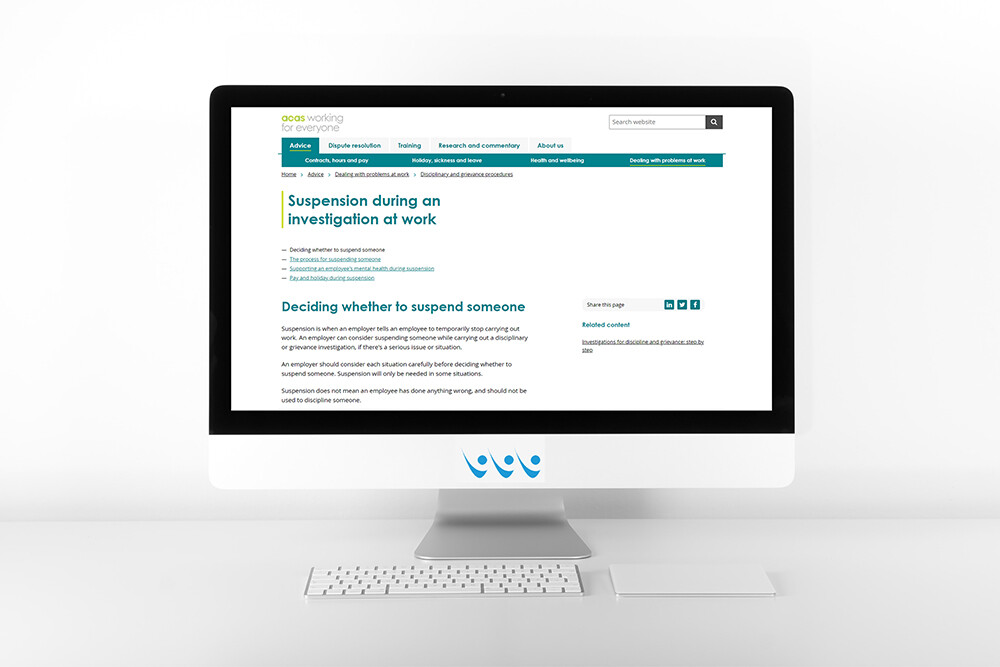In September 2022, Acas released new guidance on handling suspensions during investigations, specifically whether it is necessary to suspend, and considering the use of appropriate alternatives to suspension.
Suspension may sometimes be used during an investigation and/or to protect the health and safety of the employee or others involved.
However, suspension can now be a risky business as it is considered not to be a neutral act and can therefore lead to a potential breach of the employment contract, resulting in the possibility of tribunal claims.
Plus, it could have an impact on working relationships, and on the employee’s mental health and wellbeing.
Current guidance is that suspension should not be an automatic response.
It should only be used when it is considered reasonable and there are no appropriate alternatives.
This means you should first collect some information about what has happened, who was involved, and the severity of the situation, before even considering if suspension is an appropriate response.
There may also be alternatives to suspending an employee, depending on the specifics of each individual case.
Some alternatives could include the following temporary measures:
- The employee working at a different office, site and/or working from home.
- The employee working for a different part of the organisation.
- Changing the working/shift pattern of the employee.
- Stopping a part of the employee’s job/duties, if related to the topic of investigation.
- The employee working with different customers or away from customers entirely, if related to the topic of investigation.
- Stopping the employee from working with specific systems or tools, if related to the topic of investigation.
The reason for any temporary changes should be kept as confidential as possible, and you should discuss with the employee what the workplace will be told regarding the temporary change(s).
If a suspension is considered reasonable and no alternatives are possible, employees should be informed of their suspension in person and followed up in writing to avoid any confusion or misunderstanding.
The suspension should be kept as short as possible.
The employer must provide the reason for the suspension and make it clear that this is not a punishment, and that there has not yet been a decision made on whether the employee has done anything wrong.
The employer should also keep in regular contact with the employee throughout the process.
During the suspension, the employee must maintain their pay and benefits.
Click to read the full Acas guidance on suspensions during workplace investigations, including what happens if multiple employees are involved, when an external body is investigating, and what happens if the employee disagrees with the suspension.
Stay in the know
We’ll keep you up to date with all the latest in employment law and HR. You can unsubscribe at any time.


Recent Comments